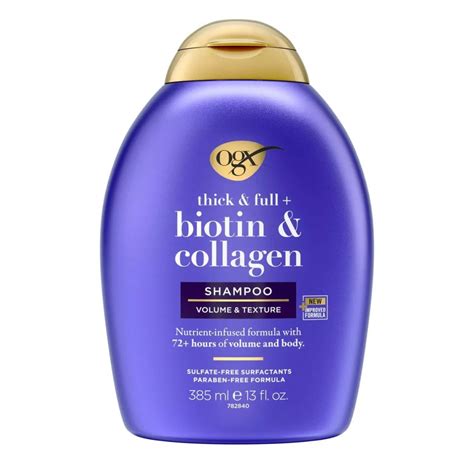Scaling Shampoo: The Game Changer for Thinning Hair?
Thinning hair is a concern for many, and the quest for solutions often leads to a crowded marketplace of products promising miraculous results. One recent addition to the conversation is "scaling shampoo," but what exactly is it, and does it live up to the hype? This article delves into the science behind scaling shampoos, exploring their potential benefits and limitations for those experiencing hair thinning.
What is Scaling Shampoo?
Scaling shampoo isn't a specific product name but rather a descriptor for shampoos formulated to address scalp scaling. Scalp scaling encompasses a range of conditions, from dandruff (caused by Malassezia globosa yeast) to seborrheic dermatitis and psoriasis. These conditions can lead to inflammation, irritation, and excessive shedding, contributing to the appearance of thinning hair. Therefore, scaling shampoos aim to address the underlying scalp issues that might exacerbate hair loss.
How Does Scaling Shampoo Work?
Scaling shampoos typically contain ingredients designed to combat inflammation, remove excess sebum (oil), and gently exfoliate the scalp. Common active ingredients include:
- Zinc Pyrithione: An antifungal and antibacterial agent effective against Malassezia globosa, reducing dandruff and inflammation.
- Selenium Sulfide: Another antifungal agent often used to treat dandruff and seborrheic dermatitis.
- Salicylic Acid: A beta-hydroxy acid (BHA) that acts as a gentle exfoliant, removing dead skin cells and unclogging hair follicles.
- Coal Tar: A natural ingredient with anti-inflammatory and antimicrobial properties, though it can have a strong odor and may stain.
- Ketoconazole: A stronger antifungal agent often prescribed for more severe cases of scalp scaling. This is usually only available with a doctor's prescription.
By addressing the scalp's health, scaling shampoos aim to create an environment conducive to healthier hair growth. A healthy scalp promotes stronger hair follicles, reducing the likelihood of breakage and further hair loss.
Does Scaling Shampoo Help with Hair Thinning?
The effectiveness of scaling shampoo for hair thinning depends significantly on the underlying cause. If hair thinning is primarily due to scalp scaling and inflammation, then these shampoos can be beneficial. By controlling dandruff or seborrheic dermatitis, they can minimize hair loss associated with these conditions. However, scaling shampoos are not a miracle cure for all types of hair thinning.
What if my hair thinning isn't related to scalp scaling?
Many factors contribute to hair thinning, including genetics, hormonal changes, nutritional deficiencies, stress, and certain medical conditions. If your hair thinning is due to genetics (androgenetic alopecia), hormonal imbalances, or other underlying medical issues, scaling shampoo alone is unlikely to provide significant improvement. In such cases, consulting a dermatologist or trichologist is crucial to determine the cause and receive appropriate treatment.
What are the potential side effects of scaling shampoos?
While generally safe, some people may experience mild side effects from scaling shampoos, such as:
- Dryness or irritation: Some ingredients can be drying, especially with frequent use.
- Allergic reactions: Sensitivity to specific ingredients is possible.
- Hair discoloration: Some ingredients, like coal tar, may temporarily discolor hair.
It's essential to follow product instructions carefully and discontinue use if any adverse reactions occur.
Can I use scaling shampoo every day?
No, overuse can lead to dryness and irritation. Most scaling shampoos are best used 1-2 times per week, depending on the severity of scalp scaling and individual needs.
What other treatments might I need in addition to scaling shampoo?
If you are experiencing significant hair thinning, scaling shampoo might only be one part of a broader treatment plan. This could include:
- Minoxidil (Rogaine): A topical medication that promotes hair growth.
- Finasteride (Propecia): An oral medication for men that inhibits DHT, a hormone linked to hair loss.
- Hair transplant surgery: A surgical procedure to restore hair density.
- Nutritional supplements: Addressing potential nutritional deficiencies.
- Stress management techniques: Reducing stress levels.
A dermatologist or trichologist can assess your condition and recommend the most appropriate treatment strategy.
Conclusion
Scaling shampoos can be a valuable addition to a hair care routine, particularly for those experiencing hair thinning related to scalp scaling conditions. However, it's crucial to remember that they are not a universal solution for all types of hair loss. Addressing the root cause of hair thinning is paramount, and consulting a healthcare professional is essential for an accurate diagnosis and personalized treatment plan. Using scaling shampoo as part of a comprehensive approach, tailored to your specific needs, offers the best chance for managing hair thinning and improving overall scalp and hair health.

